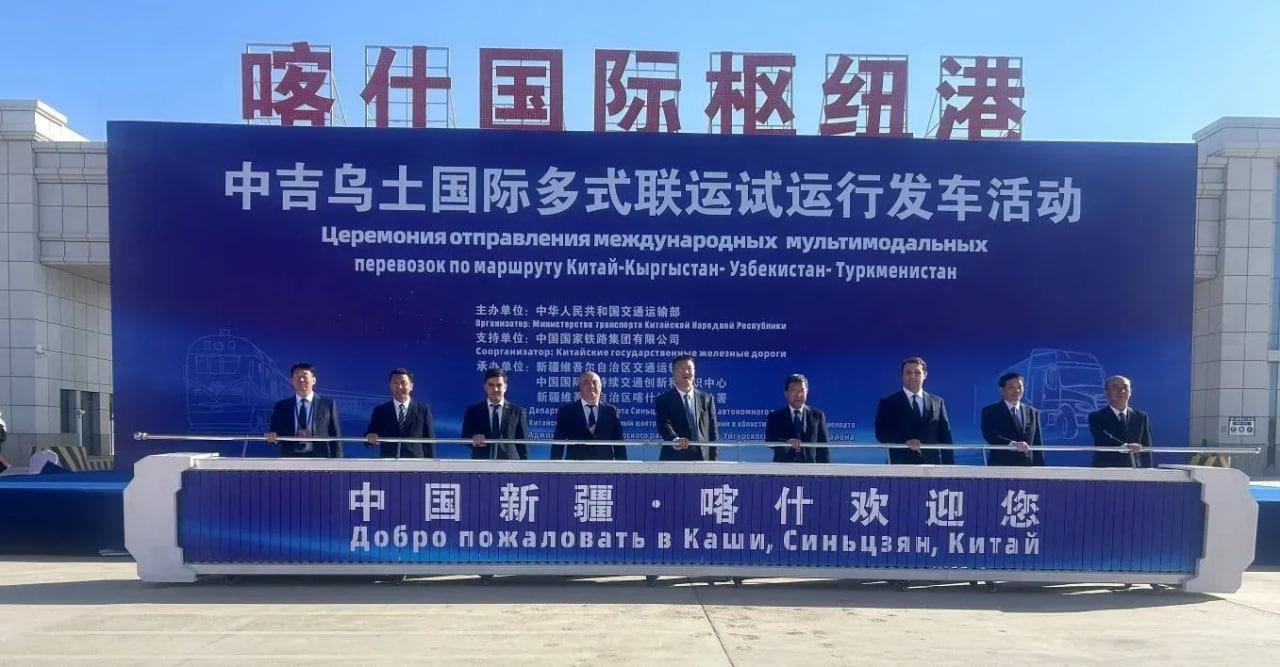CSTO: SAFE CHOICE IN CENTRAL ASIA
CSTO: SAFE CHOICE IN CENTRAL ASIA
The Collective Security Treaty Organization (CSTO) has recently raised its profile by expanding its traditional emphasis on anti-terrorism to include potential peacekeeping activities within the former Soviet region. Moreover, its memorandum of understanding with the Shanghai Cooperation Organization (SCO), signed on October 6 in Dushanbe, cements the cooperative element between the CSTO and the SCO. The CSTO will also develop its multilateral relationship with the Organization for Security and Cooperation in Europe (OSCE), making the CSTO a more appealing venue for Kazakhstan, reflecting Kazakh President Nursultan Nazarbayev’s interest in the OSCE (Avesta, October 9).
However, Moscow’s use of the CSTO as a tool to minimize the influence of the United States and other Western countries in Central Asia is well known. Reactions and interpretations of the CSTO within Central Asia have often been guarded. Indeed, many regional leaders have privately sympathized with criticisms made by Western observers who suggest that the CSTO has been a “paper tiger,” producing a plethora of documents and agreements, but little substance. Yet, in the aftermath of the CSTO summit in Dushanbe the consensus has shifted. Central Asia’s governments now see the CSTO as a potential venue to promote security in the region.
Also in Dushanbe, the chairmanship of the body was handed to Kyrgyzstan. Kyrgyz President Kurmanbek Bakiyev vowed to use his tenure as chairman to make the organization more effective in maintaining Central Asian security. “During the period of its chairmanship,” he declared, “Kyrgyzstan will make every effort to increase the effectiveness of the CSTO’s activities and to strengthen regional security for the welfare and prosperity of our countries’ peoples” (Tajik TV Channel 1, October 6).
Tajikistan’s President Emomali Rahmon views the CSTO’s importance in terms of the security problems linked with the Tajik-Afghan border. Counter-narcotics and counter-terrorism activities comprise a great deal of Dushanbe’s cooperative security arrangements. Although he has arguably detached Tajikistan from a more overtly Russia-centered security dependence, Rahmon values both the CSTO and bilateral security cooperation with Moscow. “Russia helps us a lot in strengthening our defense capability. Military and technical cooperation between Tajikistan and Russia is developing well,” Rahmon commented. “You know that Russia’s biggest military base is in Tajikistan. This also means a lot. That is why all these events are very important for us.” At the end of the summit, Rahmon presented Russian President Vladimir Putin with the Order of Ismoil Somoni, First Degree, the highest award in Tajikistan.
Russian Deputy Defense Minister General Nikolai Makarov confirmed Moscow’s plans to re-equip and enhance the Nurek facility in Tajikistan, the location of the Russian Space Troops’ space-surveillance center. “The center will be upgraded. In the near future considerable resources and funds will be directed here for that purpose,” Makarov said. He described the center as unique, taking advantage of the local climate and monitoring space for 300 days annually on behalf of the Russian Ministry of Defense, as well as for civilian purposes such as tracking satellites (Itar-Tass, October 6).
The practical aspects of using the CSTO for conflict management and peacekeeping within the Commonwealth of Independent States, pose genuine challenges for Western defense engagement with Central Asian countries. The United States and many of its allies in NATO are actively assisting in training and developing interoperability with Kazakhstan’s peacekeeping forces. These forces are drawn from Kazakhstan’s airmobile forces, based in Kapchagai. The CSTO’s declaration of interest in peacekeeping activities opens the prospect of Western security assistance to key formations in Central Asian militaries raising the possibility of competition and conflicting interests, pulling these forces between Moscow and the West.
Of course, muddying the waters in these areas serves assertive Russian foreign policy interests. Most recently, on October 10 Nikolai Patrushev, director of Russia’s Security Service (FSB), told Argumenty i fakty that British intelligence is actively seeking to dismember Russia. This comes in the context of the breakdown of Russia-UK counter-terrorist cooperation as a consequence of the fallout from Moscow’s decision to bloc London’s request to extradite Alexander Lugovoi for the murder of ex-spy Alexander Litvinenko. Added to this, a host of disagreements between Russia and the United States, particularly over Iran and U.S. missile defense plans, signals difficult times in promoting strengthened Western security ties with Central Asia (Argumenty i fakty, Moscow, October 10).
Currently no counter-terrorist cooperation exists between London and Moscow, which will have wider implications for Western efforts to engage the Central Asian states. International intelligence cooperation dynamics are driven, to a greater or lesser degree, by a country’s links with and close reliance on the FSB. Kazakhstan will not risk damaging its relationship with Washington by making too many bilateral security ties with Moscow, which could imply reservations about Western security policies. However, each Central Asian CSTO member can draw closer to Moscow without it appearing as a criticism of Washington by doing so through the CSTO. This partly explains the sudden explosion of interest in pushing the practical elements of the CSTO coming from Bishkek and Dushanbe.
Western analysts have interpreted the rhetoric from Russian intelligence aimed at London as a purely localized spat. This view ignores the damage to the international coalition in the war on terror, because the British-Russian standoff also affects security policymaking in Central Asia. For governments in Central Asia fearing the consequence of deteriorating U.S.-Russia relations, the CSTO is a safe method of conducting security cooperation. The intelligence “spat” between Britain and Russia does not appear to serve Washington’s security interests, nor does it facilitate Western engagement in Central Asia. On the contrary, it has sent a fractious fault line through the coalition against international terrorism, which runs deep through Russia’s partners in Central Asia.


